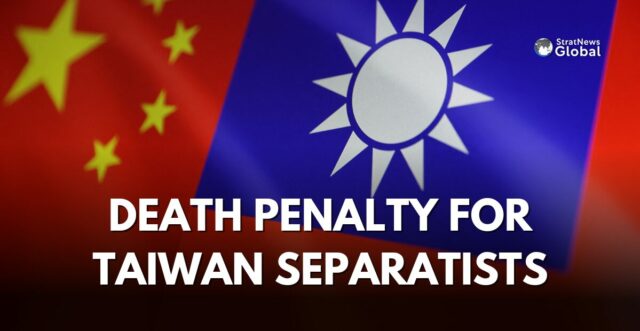China has threatened to impose the death penalty for “diehard” Taiwan independence supporters. This move aims to intensify pressure on the island, despite Chinese courts having no jurisdiction there.
China’s Stance on Taiwan
China views Taiwan as part of its territory. It has openly criticised President Lai Ching-te, labelling him a “separatist”. Since Lai took office last month, China has conducted military drills and other aggressive actions to showcase its disapproval. These include ongoing military activities, trade sanctions, and coast guard patrols near Taiwanese islands.
New Guidelines for Punishing Separatists
According to China’s state-run Xinhua news agency, new guidelines have been issued to punish those promoting Taiwan’s independence. These guidelines call for severe penalties, including the death penalty. These are for crimes such as splitting the country and inciting secession. The guidelines are based on existing laws, such as the 2005 anti-secession law. The law allows for military action if Taiwan declares independence or appears to be on the verge of doing so.
Broad Interpretation of Crimes
The new guidelines outline various actions that could be considered crimes. They include advocating for Taiwan’s membership in international organisations that require statehood. As well as engaging in official exchanges. And suppressing pro-reunification entities. Additionally, the guidelines include a clause for “other acts that seek to separate Taiwan from China.” Basically, this allows for a wide interpretation of what constitutes a crime.
Taiwan’s Response
Taiwan’s Mainland Affairs Council condemned Beijing’s move, asserting that China’s laws have no jurisdiction over Taiwan. The council urged Taiwanese people not to be intimidated by China. It stated, “The Beijing authorities have absolutely no jurisdiction over Taiwan, and the Chinese communists’ so-called laws and norms have no binding force on our people.”
The new guidelines specify punishable crimes, including promoting Taiwan’s entry into international organizations where statehood is a requirement, having external official exchanges, and suppressing groups that promote reunification. The guidelines also include a broad clause for “other acts that seek to separate Taiwan from China.”
Historical Context and Legal Measures
China has previously taken legal action against Taiwanese officials. These include imposing sanctions on Hsiao Bi-khim, Taiwan’s former de facto ambassador to the United States. He’s the current Vice President. However, these measures have limited practical impact as Chinese courts do not have jurisdiction in Taiwan. And Taiwan rejects Beijing’s claims of sovereignty. Senior Taiwanese officials, including the President, do not visit China. That urther diminishes the effect of such threats.
(With Inputs from Reuters)
Research Associate at StratNewsGlobal, A keen observer of #China and Foreign Affairs. Writer, Weibo Trends, Analyst.
Twitter: @resham_sng





